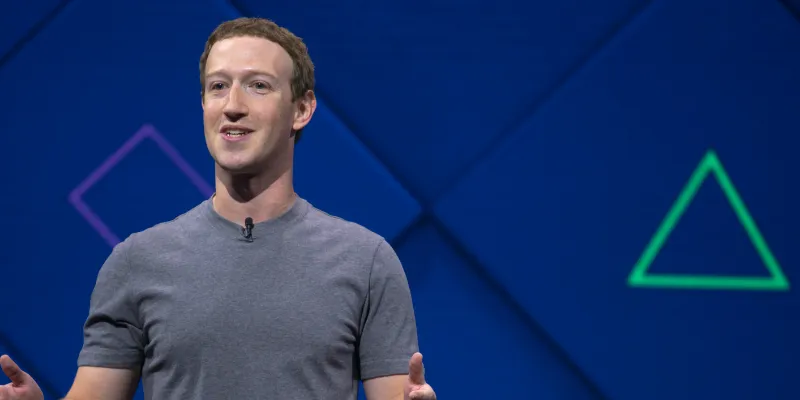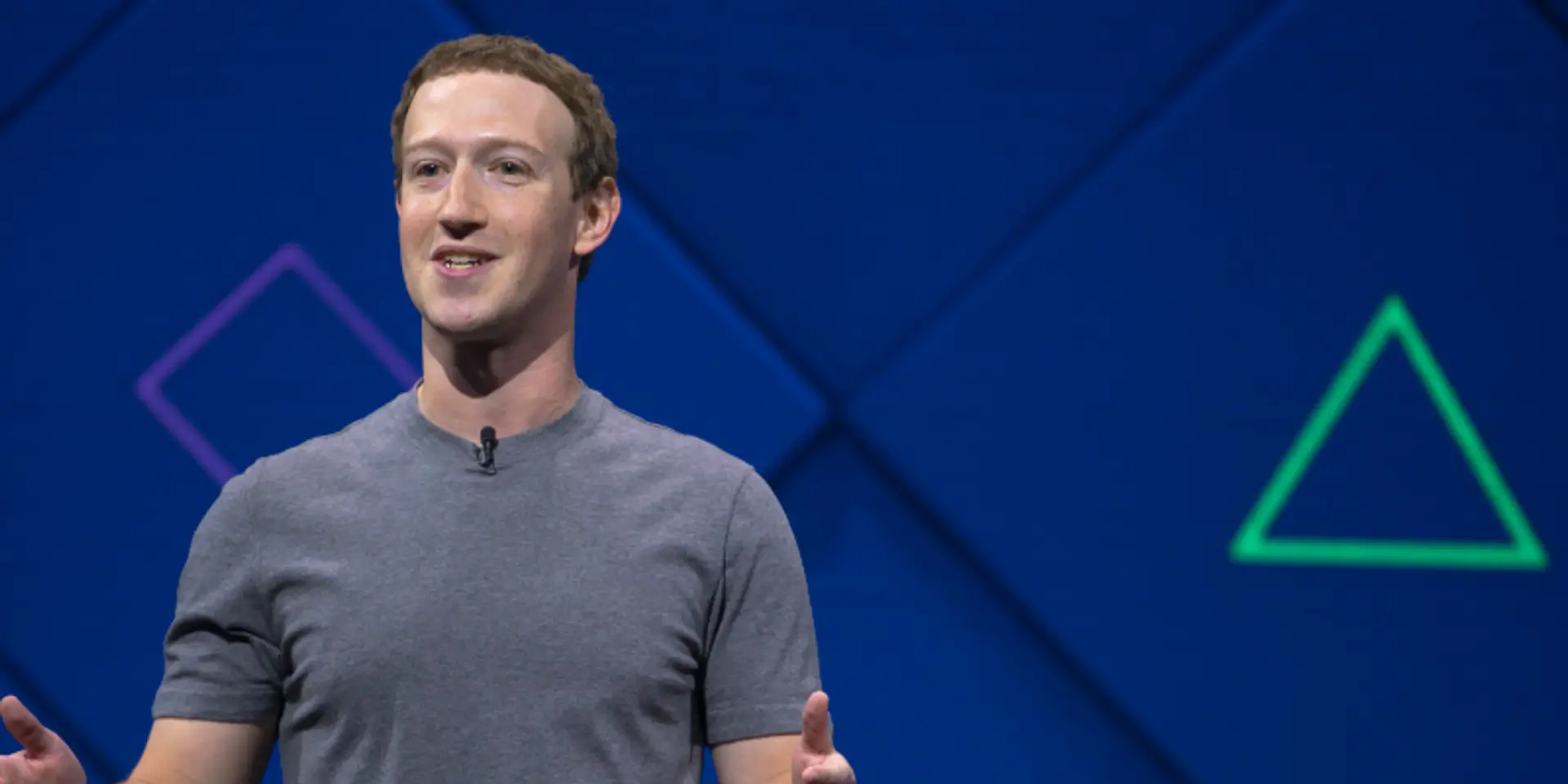Messenger, camera, analytics- highlights from F8, Facebook's developer conference
On Tuesday, more than 4,000 people attended Facebook's annual developer summit, F8 2017, at McEnery Convention Center in San Jose, California, while millions watched the keynote via Facebook Live. Here are some highlights from the event.

'Camera is the first mainstream AR platform'
Mark Zuckerberg opened the conference with a keynote about how the camera is the first mainstream augmented reality (AR) platform. He noted that people are already using the cameras on their phones to write text on images, add digital objects and modify existing things with face filters and style transfers. He said,
That’s why today we announced the Camera Effects Platform, giving developers the power to build AR tools for the camera and bring people together in new ways.
Facebook will offer its community of artists and developers a suite of creative tools, to create a full spectrum of effects for the new Facebook camera, from simple photo frames to interactive effects and masks using the latest in AR technologies.
The Camera Effects Platform includes two products:
1) Frames Studio
Frames Studio is an online creative editor, now available globally, which allows users to design frames that can be used either as profile picture frames or in the new Facebook camera.
2) AR Studio
AR Studio, now open for beta applications, can be used to create masks, scripted effects, animated frames and other AR technologies that react to movement, the environment or interactions during live videos.
Some of the other day one speakers at F8 included Facebook CTO Mike Schroepfer; VP of Platform & Marketplace Deb Liu; Head of Social VR Rachel Franklin; VP of Product Partnerships Ime Archibong; and VP of Messaging Products David Marcus. Here is a summary of some of the key announcements:
Facebook Spaces
Facebook Spaces is a new virtual reality (VR) app where users can hang out with friends in an interactive virtual environment as if they were in the same room. Rachel noted that Facebook Spaces would be launching in beta for Oculus Rift on Tuesday itself. Describing the platform, she said,
With Facebook Spaces, you can view Facebook content with friends in VR, including 360 videos and photos that can transport you to new places. You can draw in the air with a virtual marker to create anything you can dream up, from a decorative hat to a handmade tic-tac-toe board.

Facebook Spaces will also lets users phone a friend in the real world with Messenger video calling. Friends can then answer the call on their phone to instantly open a window into the caller's virtual world. She explained,
Of course, there’s a selfie stick too. Use it to take photos of your experience and share the memories you create in VR with your friends on Facebook.
Developer Circles
Facebook also announced a new programme for developers all over the world to connect, learn, and collaborate with other local developers, build new ideas and learn about the latest technologies from Facebook and other industry leaders. The platform--Developer Circles--is a community-driven programme that’s free to join and open to any developer. Ime noted,
Each Developer Circle is led by members of the local community, who act as leads for the circle, organising events offline and managing a local online Facebook community.
Places Graph
Another announcement included Places Graph, providing free access to data on more than 140 million places around the world. These places include everything from public spaces and parks, to restaurants, stores and other local businesses. Designed to help save money and scale, the data includes place names, addresses, photos, Facebook consumer ratings and more. The release noted,
Apps can use this data to create location-aware experiences that help people learn more about where they are so they can make informed decisions about where to go and what to do.
Identity- Facebook's Aadhaar equivalent?
For developers who have an app and a Messenger bot, Facebook has launched Identity, to help connect with a person across both platforms. The company noted,
Our new API allows you to map between a Facebook Login ID and a Messenger ID, so you can serve your customers smoothly across both experiences.
Facebook Analytics
Formerly known as Facebook Analytics for Apps- and now just as 'Facebook Analytics', the feature is a free product for accessing audience demographics, and measuring customer behaviour across channels. Facebook announced new capabilities designed to help developers understand and optimise their complete customer journey across the channels they use to interact with customers, such as their app and website.
Amit Finkelstein, Engineering Manager, Facebook Analytics noted in the company blog that Facebook is often surprised by the amount of time businesses spend in analytics tools — hunting for insights, anomalies or clues that will inform their next experiment and drive their next wave of growth. To facilitate this better, Facebook announced the launch of automated insights.
Using advanced machine learning and artificial intelligence, Facebook Analytics reduces the time spent searching for clues by bringing valuable insights directly to you. With this new feature, you’ll see insights such as changes in purchases for a new version of your app, or variations in engagement across people in different cities.
Messenger
Facebook's Messenger platform debuted a year ago, and Facebook noted that its ecosystem has more than 1.2 billion people, 100,000 developers and 100,000 monthly active bots, with two billion messages being sent between people and businesses on Messenger every month.

David took the stage to share some of the new features and advanced tools announced on Tuesday, which include:
- A new discover tab- This allows people to find the bot for Messenger they’re looking for in an intuitive and thoughtful way, right from the home screen in Messenger. Facebook has also enabled discovery in the physical world with new parametric Messenger codes.This gives people the option to scan Messenger Codes through the Messenger camera and link to brands and businesses.
- Chat Extensions- This allows multiple people to chat with the same business at the same time. People can now add in a bot directly in a group thread and share the conversation and experience.
- Order food through M- Messenger’s AI assistant, M, now offers the ability to order food through delivery.com. For instance, if one is chatting with friends about what to grab for dinner, M will suggest placing an order. Then the whole experience can be completed in Messenger, including group ordering and payment.
- Smart Replies, which help Pages to respond to the most frequently asked questions that small businesses receive, such as business hours, directions and contact details.
- Hand-over Protocol is a new way for businesses to work with multiple developers for different experiences on Messenger.
For more details, one can check the Developer Blog and Engineering Blog.







